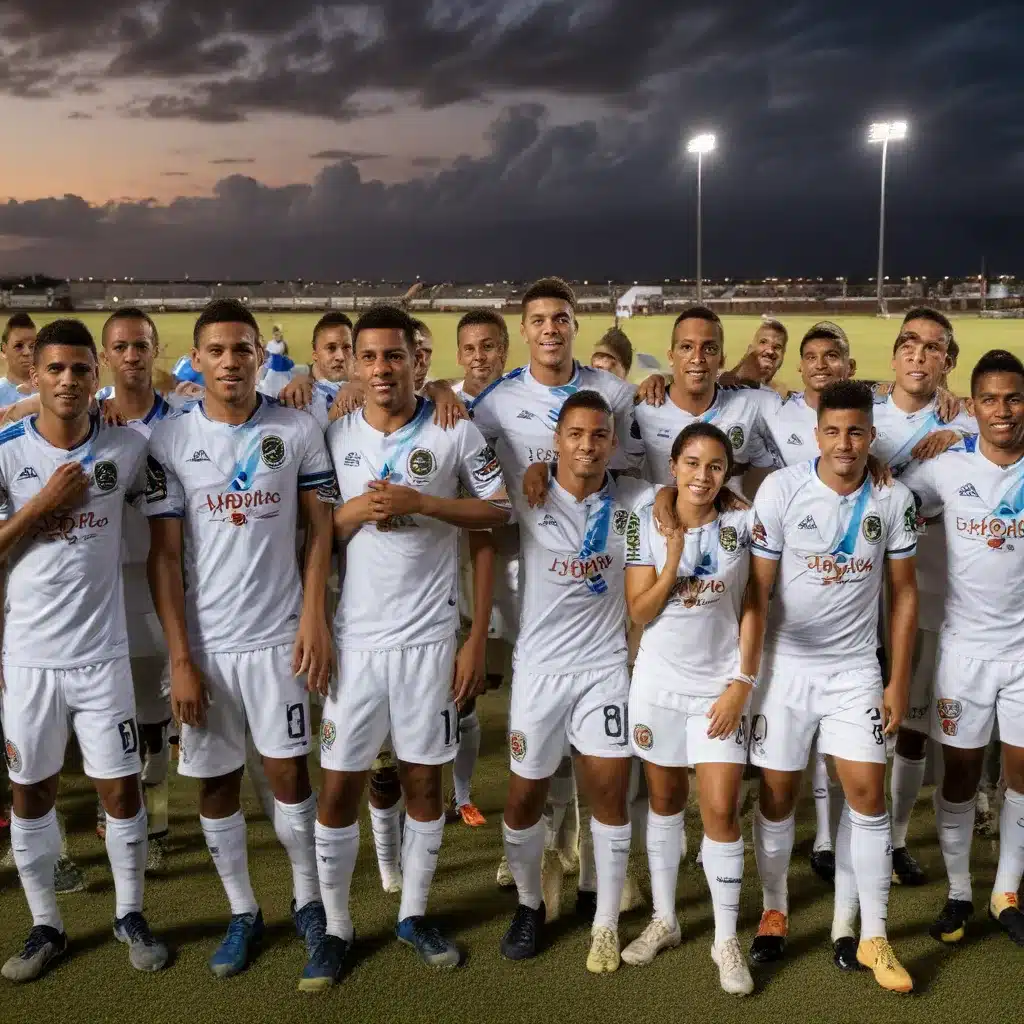
Football Clubs in Northeast Brazil
While the glitz and glamour of the big clubs from Brazil’s wealthier southern and southeastern regions often dominate the national spotlight, the northeast of the country has a rich and vibrant football culture all its own. From the passionate supporters of legendary clubs like Sport Recife and Bahia, to the rise of ambitious sides like Ceará and Fortaleza, the northeast has carved out a unique identity within the wider Brazilian game.
Major Clubs:
Undoubtedly the most famous and successful club from the northeast is Sport Recife, a powerhouse that has won the Campeonato Pernambucano state championship a record 41 times. Established in 1905, Sport is revered for its fervent fan base and the technical flair of its players. Bahia, founded in 1931, is another northeastern giant, having won the Brazilian national league title in 1959 and the Copa do Nordeste regional competition on eight occasions.
Lesser-Known Clubs:
Beyond the headline acts, the northeast is home to a host of other clubs with proud traditions and loyal followings. Fortaleza Esporte Clube, the subject of this article, has carved out a unique identity for itself, while teams like Ceará, Santa Cruz, and Vitória da Conquista have all made important contributions to the region’s football culture. These clubs may not boast the same national profiles as their more illustrious counterparts, but they embody the passion and community spirit that is the lifeblood of the game in Northeast Brazil.
The History of Fortaleza Esporte Clube
Origins and Founding
Fortaleza Esporte Clube was founded on October 18, 1918, by a group of local enthusiasts who wanted to establish a football club that could represent the city of Fortaleza and the wider state of Ceará. In the early years, the club faced significant challenges, struggling to establish itself amidst the dominance of other regional powers. However, through sheer determination and the unwavering support of its devoted fanbase, Fortaleza gradually began to make its mark on the northeastern football scene.
Significant Achievements
While Fortaleza may not have the same trophy-laden history as some of Brazil’s most successful clubs, they have nonetheless carved out an impressive record of achievement over the decades. The club has won the Campeonato Cearense state championship on 44 occasions, making them the most successful team in the state’s history. They have also triumphed in the prestigious Copa do Nordeste regional tournament on three occasions, in 1997, 2019, and 2022.
Fortaleza’s crowning glory, however, came in 2018 when they clinched their first-ever Série A title, the top division of the Brazilian national league. This historic achievement was the culmination of years of hard work, shrewd recruitment, and the unwavering support of the club’s passionate fanbase. The Leão do Pici (the Lion of Pici, as they are affectionately known) have since established themselves as a consistent force in the upper echelons of Brazilian football, earning plaudits for their attacking style of play and the development of talented young players.
Fortaleza’s Fanbase and Local Impact
Passionate Supporters
Fortaleza’s supporters are widely regarded as some of the most passionate and dedicated in the whole of Brazil. The club’s home ground, the Estádio Presidente Vargas, is renowned for its electric atmosphere, with the Fortaleza faithful creating a cauldron of noise and colour that can intimidate even the most seasoned opponents. The club’s official supporters’ group, the Torcida Uniformizada do Fortaleza, is a formidable presence, leading the chants and choreographed displays that have become synonymous with the Fortaleza matchday experience.
Community Involvement
Fortaleza’s impact extends far beyond the confines of the football pitch, as the club has long been deeply embedded within the local community. Through various social and charitable initiatives, the club has sought to give back to the people of Fortaleza, providing support and opportunities for underprivileged youth, as well as championing important causes such as environmental protection and inclusivity. This deep-rooted connection with the city and its inhabitants has further cemented Fortaleza’s status as a source of immense pride and identity for the people of Northeast Brazil.
The Northeast Brazil Football Scene
Regional Rivalries
The northeast of Brazil is home to some of the fiercest and most storied rivalries in the country. The Clássico das Multidões, the derby between Fortaleza and Ceará, is a prime example, with the two clubs sharing a deep-seated animosity that has been passed down through generations of supporters. These regional derbies are not just about the football – they are cultural and social events that reflect the rich tapestry of the northeast’s diverse communities.
Challenges and Opportunities
Despite the passion and commitment of its supporters, the northeast of Brazil faces significant challenges when it comes to the development and sustainability of its football clubs. The region’s relative economic disadvantage compared to the wealthier south and southeast has meant that clubs often struggle to compete with their more affluent counterparts in the race for top talent and resources. However, the northeast’s rich football heritage, combined with the unwavering loyalty of its fans, presents tremendous opportunities for growth and innovation. Clubs like Fortaleza are leading the way, showcasing the region’s potential and inspiring a new generation of footballing talent.
As the Brazilian game continues to evolve, the northeast’s unique football culture and the clubs that embody it, such as Fortaleza Esporte Clube, will undoubtedly play an increasingly important role in shaping the future of the beautiful game in the country. From the passionate supporters in the stands to the talented players on the pitch, the northeast’s football scene is a testament to the enduring power of the sport to unite, inspire, and captivate.

